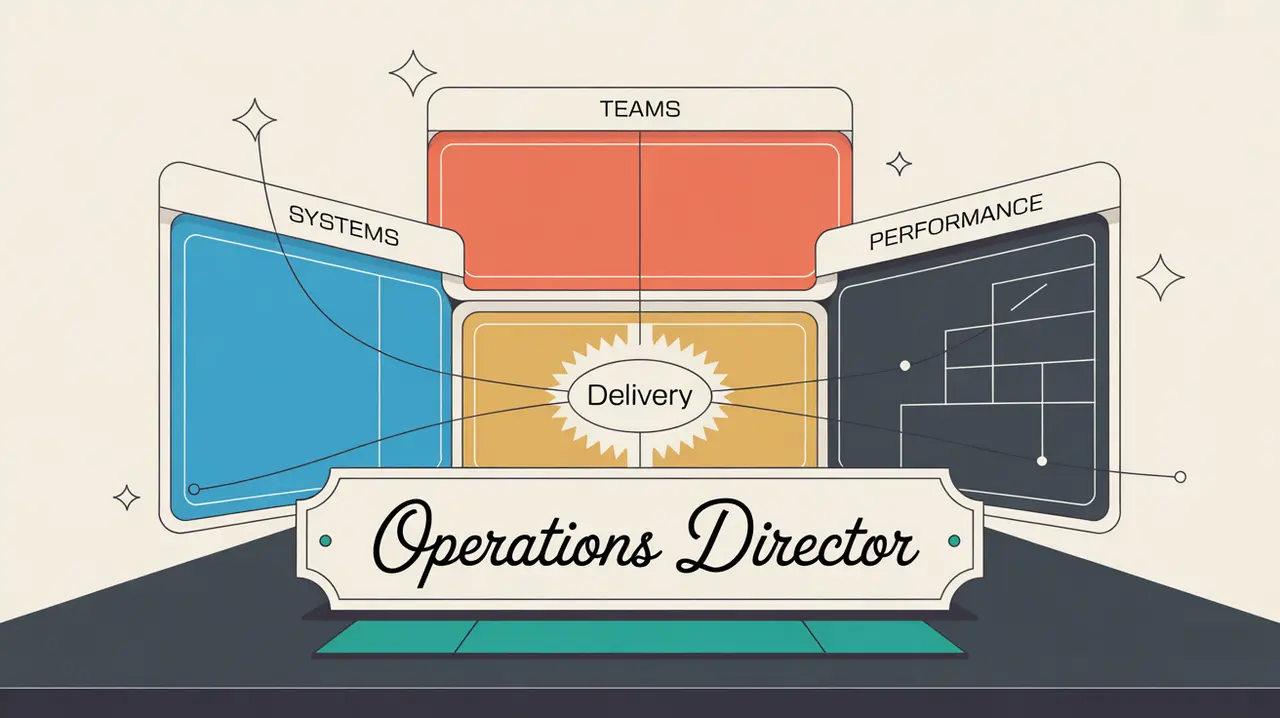What Does the Operations Director Role Involve?
An operations director is responsible for overseeing the systems, processes, and teams that enable the organization to function efficiently and deliver on its mission. This includes managing operational strategy, supervising administrative and logistical functions, ensuring compliance with policies and regulations, overseeing financial and human resource operations, and aligning operations with organizational goals. The role typically sits within executive leadership or senior management functions. In nonprofits and social enterprises, operations directors are central to ensuring that organizational infrastructure supports both mission delivery and sustainable growth.
At What Level does this Role Operate?
Executive Level: This role typically reports to the chief executive officer or chief operating officer and often manages multiple departments such as finance, HR, administration, and logistics. It involves significant decision-making authority and strategic oversight of operational systems across the organization.
Relative Employability: Operations director roles are in high demand across nonprofits, social enterprises, development agencies, and international NGOs. Organizations increasingly recognize the importance of strong operational leadership to support program effectiveness and scalability.
Relative Pay Scale: Operations director roles sit within executive-level pay bands, reflecting their leadership scope, strategic responsibilities, and oversight of critical organizational functions.
What are the Key Responsibilities and Activities?
- Lead the development and execution of operational strategies that align with organizational goals
- Oversee administrative, financial, HR, and logistical functions to ensure effective organizational support systems
- Manage budgets and resources in coordination with finance teams and senior leadership
- Ensure compliance with legal, regulatory, and funder requirements across operations
- Strengthen operational policies, procedures, and systems to improve efficiency and accountability
- Supervise operational teams and build capacity to support high-quality service delivery
- Collaborate with program and strategy teams to align operations with mission priorities and growth plans
- Provide strategic input on organizational planning, risk management, and resource allocation
What Core Competencies and Qualifications are Needed?
Required Qualifications and Experience
The following reflect common qualifications and experience expected for this role, while recognizing that pathways may vary by context, organization, and region.
- Advanced academic background in business administration, nonprofit management, public administration, or related fields, or equivalent professional experience
- Extensive experience in operations leadership within nonprofits, social enterprises, or mission-driven organizations
- Proven ability to manage complex systems, budgets, and cross-functional teams
- Strong strategic planning, financial management, and problem-solving skills
- Knowledge of legal and regulatory compliance requirements relevant to the sector
- Excellent communication, leadership, and stakeholder engagement abilities
Key Competencies
- Strategic operational leadership
- Systems and process optimization
- Financial and resource management
- Compliance and risk management
- Cross-functional team leadership
- Organizational planning and decision making
- Capacity building and change management
How are AI and Automation Shaping this Role?
An AI-native operations director will look to AI and automation to strengthen operational efficiency, improve decision-making, and increase organizational agility. They can use AI tools for financial forecasting, workflow optimization, compliance monitoring, and data integration across departments. Automation can streamline administrative tasks, reporting, and logistics, allowing operations directors to focus on strategic planning and capacity building. By leveraging these technologies, they can lead more adaptive, data-informed operations that support organizational growth and mission delivery.
What Career Pathways and Transferable Skills are Associated with this Role?
Operations director roles can lead to positions such as chief operating officer, executive director, or chief strategy officer. The skills developed in operational leadership, strategic planning, compliance, and systems management are highly transferable across nonprofits, social enterprises, development agencies, government institutions, and private sector organizations. This role represents a key executive function that ensures the organization has the operational backbone to deliver sustainable impact.







